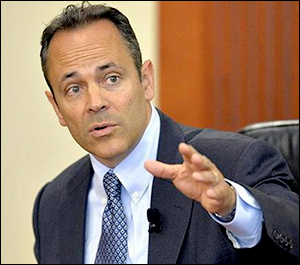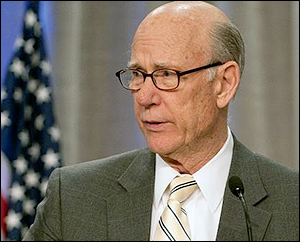By Jim Ellis
Jan. 9, 2019 — Blue Grass State politics are beginning to boil, all centered around the 2019 governor’s race. With the candidate filing deadline fast approaching on Jan. 29 for the May 21 statewide primary, several individuals are announcing that they will challenge unpopular Gov. Matt Bevin (R), including a Republican state legislator who is expected to make his formal declaration today.Though the governor has said he intends to seek a second term, and did so again a week before Christmas, the fact that he has yet to file a 2019 campaign committee has fueled speculation that he may decide to retire. Bevin was elected in 2015 with a relatively substantial 52.5 – 43.8 percent victory over then-Attorney General Jack Conway (D) after upsetting then-agriculture commissioner and now US congressman, James Comer (R-Tompkinsville), by just 83 votes in a May Republican primary that drew almost 215,000 voters.
Bevin’s popularity ratings, however, have largely been upside-down throughout his tenure in office. According to the Morning Consult quarterly national gubernatorial approval rankings that were released just before the November elections in mid-October, Gov. Bevin ranked 46th on the nationwide list, with a 30:55 percent positive to negative ratio.
None of those finishing below the Kentucky governor on that particular scale in October remains in office. The least popular, according to the survey, Oklahoma Gov. Mary Fallin (R), was ineligible to seek a third term last November. Republican Kevin Stitt replaced her. Connecticut Gov. Dan Malloy (D) did not seek a third term and Democrat Ned Lamont held the office. Illinois Gov. Bruce Rauner (R) was defeated for re-election, and Alaska Independent Gov. Bill Walker withdrew before the election because his political situation was hopeless.







